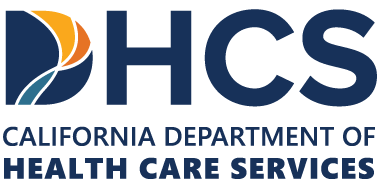FOR THE PARENTS
FOR THE PARENTS
Your child may need counseling for ADHD, anxiety, bipolar disorder, depression, trauma or to stop using drugs. Typically, counseling will be weekly at first and then shift to every few weeks or monthly once things start to improve. The whole process may take several months or longer.
Your counselor may focus on helping your child change certain thoughts and behaviors. This is called Cognitive Behavioral Therapy (CBT). Another approach, called Dialectical behavior therapy (DBT), is used to teach healthy ways to manage feelings.
10 things parents can do to support the counseling process:
1. Don’t ask kids to report on what they say in counseling.
Counseling needs to be a private place for your child to talk about the problems they are having. Feel free to ask about how things are going in counseling.
2. Understand that the counselor is obligated to protect your child’s privacy.
When young people know that their privacy will be protected in counseling they are much more likely to be open about the real problems they are dealing with. But there are limits to privacy. If your child talks about hurting themself or someone else, or about being abused, the counselor will tell you.
3. Share your concerns.
If you’re worried about your Teen’s behaviors or emotions, talk with the counselor about it.
4. Participate
Strengthening the parent/child relationship is a common goal in counseling. Be ready to jump in and join the counseling process.
5. Be Patient
Counselors are not miracle workers. It takes time to build a trusting relationship with a counselor. It also takes time to learn new ways of behaving and managing emotions.
6. Focus on the Positive
Being encouraging of the process will help your child get the most out of the process.
7. Look within
Being a parent is hard. Getting counseling for yourself can help. We would be happy to link you up with one of our Counselors.
8. Tap into the Research
A lot can be gained from reading a parenting book or completing an online course. Ask your child’s counselor for specific suggestions.
9. Watch for Red Flags
If your child talks about hopelessness, self harm, suicide, or having been abused in some way – take it seriously. If the situation is life threatening – call 911 or go to the nearest emergency room. Once the emergency is dealt with, call your child’s counselor.
10. Safety Planning Is Essential
The counselor may help your child build a safety plan that focuses on healthy ways to cope, safe places to go, and a list of people who can help when needed.
Crisis Resources
24/7 Mental Health Urgent Care – Provides 24 hour/7 days/365 urgent care mental health screening and assessment services and medications to address the needs of those in crisis with a safe, efficient, trauma-informed, and least-restrictive setting.
There are 3 locations:
- Riverside: 9990 County Farm Rd. Riverside, CA 92503 (951) 509-2499
- Palm Springs: 2500 N Palm Canyon Dr, Suite # A4 Palm Springs, CA 92262 (442) 268-7000
- Perris: 85 Ramona Expressway, Suites 1-3 Perris, CA 92571 (951) 349-4195
Suicide & Crisis Lifeline
Call 988 – The Lifeline provides 24/7, free and confidential support for people in distress, prevention and crisis resources for you or your loved ones, and best practices for professionals in the United States.
Youth Crisis Line
800-843-5200 – Call or text the California Youth Crisis Line, 24 hours a day, 7 days a week.
The Trevor Lifeline
National organization providing crisis and suicide prevention services to lesbian, gay, bisexual, transgender and questioning (LGBTQ) Youth – 866-4-U-TREVOR (866-488-7386)
National Domestic Violence Hotline
Call 1-800-799-7233 and TTY 1-800-787-3224. You can use their Interactive Guide to Safety Planning to create a comprehensive safety plan for you and your family.
Love is Respect National Teen Dating Abuse Helpline
Call 1-866-331-9474 or TTY 1-866-331-8453
Rape, Abuse & Incest National Network’s (RAINN) National Sexual Assault Hotline
Call 800-656-HOPE (4673) to be connected with a trained staff member from a sexual assault service provider in your area

